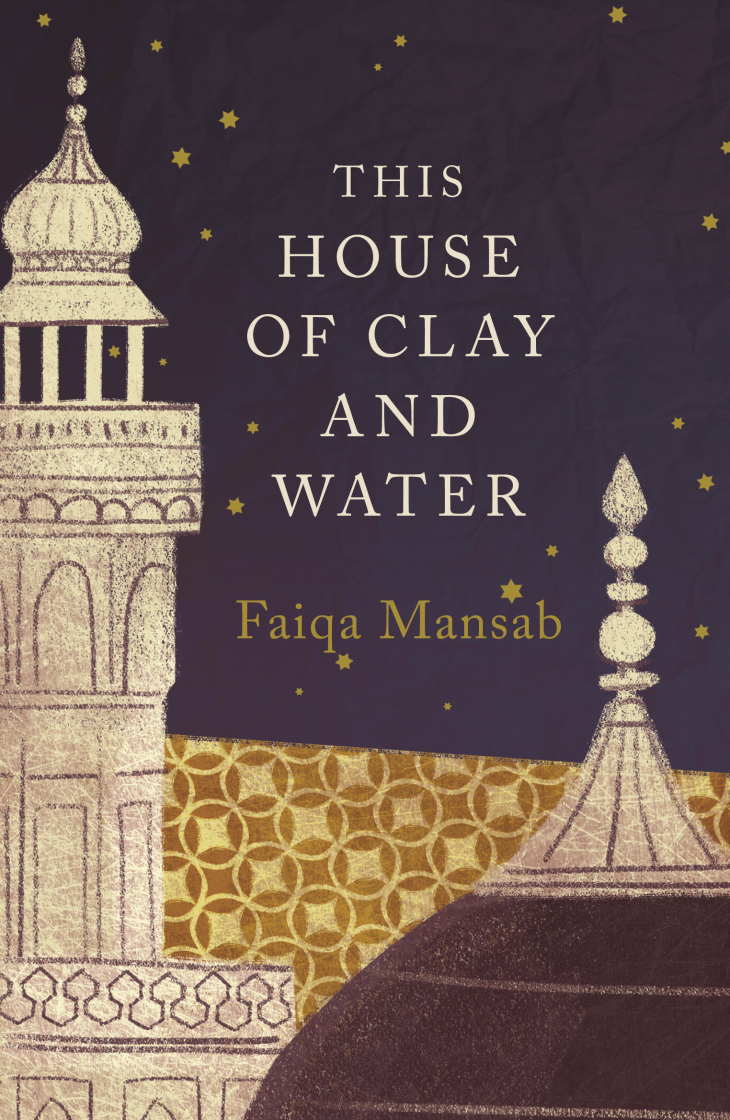
In this house of clay and water, my heart lies in ruin without you. Dear Soul, please enter this house, so I can begin to rebuild. ~ Rumi.
In Faiqa Mansab's story, or the multitude of stories that run through it, there is a singular overarching theme – the need for love.
What's truly fascinating though, is the different ways in which this need manifests itself – through a child seeking her mother, a mother lamenting the loss of a child, a woman looking to love herself through the many men she beds, a hijra who has never had anyone love him, and men, men who demand that love.
This House of Clay and Water, which gets its name from Rumi's quote, is not an easy read. This is not because it is inaccessible or traumatising, but because Mansab chooses to write about concepts that are difficult for the average person to fathom.
Understanding the 'forbidden'
“A man, even a poor one, can get away with a lot in this world. A woman is doomed from birth. She finds solace in her children. She becomes a mother and all the sacrifices she has made eventually come back to her in the form of obedient children. But a hijra? Oh, Bhanggi, a hijra is doomed at birth too. But unlike a woman, he will never find shelter from his body in motherhood. No tiny hands will wipe his tears away, no spindly-legged boy will grow up to become her shield and sword against the cruelty of his own father. That is not the lot of us hijras.”
The Hijra community and culture, something ancient and indigenous to the Indian subcontinent, though mentioned in passing on the book's cover, occupies a large part of the text and the mind space of the characters in This House.
Invisible, asexual, almost inconvenient, hijras are talked about, if at all, always through the voice of someone else. But Mansab's book tackles this problem of visibility through Bhanggi, an intersex character who serves as narrator for parts of the book.
Bhanggi lives on the sidelines of society by virtue of his sex, but he desires to be a man, and, more problematically, desires the love of a woman, making him an outcaste among the outcastes. The gender politics here aren't easily explained, and yet Mansab manages to communicate it by letting Bhanggi voice his anguish himself.
Many would call This House bold for violently cutting through the 'normal' and realistically establishing the possibility of love between two individuals, a love that transcends gender and society.
'A story of forbidden love in Pakistan', the cover of the book announces, but honestly, this is beyond just forbidden. Because to deem something forbidden is to acknowledge its existence.
There is no recognition of the sexuality and desire of a hijra, be it in India or Pakistan, and, as Mansab puts it, that's the veil behind which Bhanggi hides. Because surely, a Hijra's gaze is never a threat?

Denial as a trope
Zoya didn't like the way her mother looked at Abba now. It was unnerving. Ever since she'd come back from the hospital, Mama's attitude and behaviour towards Abba had begun to resemble Razia and Idrees's relationship. Maybe that was why she couldn't abide Abba hugging her any more, and Mama shot her the strangest looks every time, as if she were doing something wrong when she squirmed out of his embrace. She felt angry at that. Mostly at Mama.
The other social reality the book takes on is of child abuse. This House takes a realistic, often painful, look at the shame associated with child abuse, the denial of parents, and the final, painful acceptance and anger associated with it.
Idrees' rape of Zoya, the only part of the book that descriptively illustrates an act of sex, making it more harrowing than a brief mention would, is troubling. But the 12-year-old's quiet acceptance that the repeated instances of rape were perhaps better than the abandonment she feels around her mother, is even more disturbing.
This House of Clay and Water isn't the perfectly written book, with fantastic descriptions, or endearing characters. If anything, one of the main characters, Nida, is overbearingly prosaic, and almost a caricature of a woman trapped in an unhappy marriage.
Oddly, Faiqa Mansab doesn't write her women as well as the child or the hijra. Progressive as the book is, by constantly judging a female character – Sasha (Zoya's Mama) – through Nida, her kids, or the men she has in her life, Mansab manages to pander to the same old understanding of the fallen woman she's otherwise so desperately critiquing in the book.
Sasha's narrative is constantly hijacked by the people around her. Even when she's the narrator in the story, Mansab often chooses to let others tell their stories instead, almost as if she doesn't deserve to tell hers. And that's problematic.
Problems, but not unsolvable
This House is a flawed book that's plain irritating in parts, verbose in others, and at times just drones on about nothing. But flawed doesn't mean it should be rejected, for it dares to tell a story none would, at least the way Mansab does, with sensitivity.
The book should be forgiven for its frivolities as it more than redeems itself by telling a love story many wouldn't want to hear. That Mansab lightly stereotypes Bhanggi by making him add “ji” to every line he thinks should be seen in conjecture with the storyline she gives him, the Qalandar.
Even though the novel jumps timelines in an almost incoherent manner in parts, it reduces the value of a timeline, making time cyclical. Which, to the Indian subcontinent, is a spiritual understanding of time.
For a debut novel, the social relevance of what Faiqa Mansab has achieved through This House of Clay and Water, is definitely laudable.
First published: 25 May 2017, 20:10 IST







![BJP's Kapil Mishra recreates Shankar Mahadevan’s ‘Breathless’ song to highlight Delhi pollution [WATCH] BJP's Kapil Mishra recreates Shankar Mahadevan’s ‘Breathless’ song to highlight Delhi pollution [WATCH]](https://images.catchnews.com/upload/2022/11/03/kapil-mishra_240884_300x172.png)

![Anupam Kher shares pictures of his toned body on 67th birthday [MUST SEE] Anupam Kher shares pictures of his toned body on 67th birthday [MUST SEE]](https://images.catchnews.com/upload/2022/03/07/Anupam_kher_231145_300x172.jpg)






